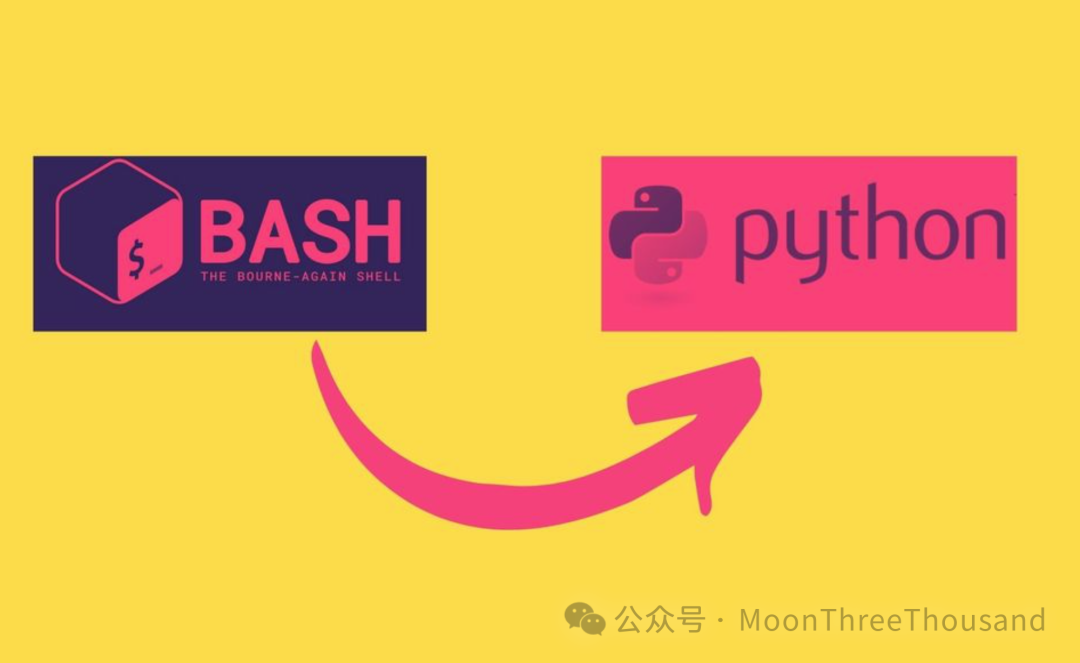 In China, there is a saying – “Since you are here, you might as well enjoy it!”Seeing beautiful scenery on TV, with green mountains and clear waters, and cascading waterfalls, one might impulsively drive to the destination. Upon arrival, they realize that it was the camera that was beautiful, not the scenery. But since they are already there, a stroll around is still worthwhile.Many IT professionals are extremely excited after installing Linux.They think, having arrived at Linux – the programmer’s operating system, how can they leave without learning a new programming language?So, what should they learn?Shell, Perl, or Python?At this moment, many people instinctively think of learning Shell, because only Shell is complete, with no missing functions, and is the most versatile, so they subconsciously start learning Shell.Little do they know, Python is actually the better choice!Why?Let’s start with three stories!1. The Nightmare of “Automation”Little Zhang is a newly hired operations engineer, and his daily work involves repetitive tasks like backing up files, cleaning logs, and monitoring server status.He heard that Bash scripts can automate these tasks, so he eagerly started learning.However, the syntax of Bash gave him a headache:Why can’t there be spaces in variable assignments?Why do string comparisons use `-eq` instead of `==`?Why does a simple loop require so many strange symbols?After a week of struggle, Little Zhang finally wrote a “usable” script.However, one day the script crashed due to a space issue, causing the server logs to not be cleaned in time, leading to a full disk and a system crash. The boss slammed the table in anger: “Your script is less reliable than doing it manually!”Later, Little Zhang learned Python and found that the same task could be accomplished with just a few lines of clear code. He lamented: “If I had known, I would have learned Python directly, why waste so much time on Bash?”2. The Dilemma of “Data Analysis”Old Wang is an experienced Linux user, and he usually handles simple text operations with Bash effortlessly.One day, his boss asked him to analyze a batch of server logs to find the IP address with the highest traffic. Old Wang confidently opened the terminal and began to piece together commands using `awk`, `sed`, and `grep`.However, as the requirements became more complex, he found Bash’s processing capabilities to be inadequate: he made mistakes in regular expressions, the data formats were inconsistent, and even the Bash script crashed due to the large file size.In desperation, Old Wang sought help from a programmer friend. The friend wrote a few lines of code in Python, using the `pandas` library, and easily completed the data analysis task.Old Wang looked at those few lines of concise code, feeling mixed emotions: “So Python is so powerful, what was I struggling with in Bash for?”3. The Trouble of “Cross-Platform”Little Li is a freelance developer who usually writes small programs on Linux. He initially wrote an automation deployment tool in Bash, thinking it was quite convenient.However, when he tried to port the tool to Windows, he found that the Bash script simply wouldn’t run. He had to relearn PowerShell, and ended up frustrated due to the syntax differences.Later, Little Li rewrote the tool in Python.He was pleasantly surprised by Python’s cross-platform capabilities: the same code could run seamlessly on Linux, Windows, and even macOS.He exclaimed: “Python is truly the ‘write once, run anywhere’ language!”4. Why Python?There are many reasons:1. Simple syntax, quick to learn Python’s syntax is close to natural language, making it easy for beginners to understand. In contrast, Bash’s syntax is filled with various symbols and rules, and one can easily make mistakes.2. Powerful features, rich ecosystem Python has a vast array of third-party libraries, whether for data analysis, web development, or automation, you can find ready-made tools. While Bash is powerful, it falls short in the face of complex tasks.3. Cross-platform, strong versatility Python can run not only on Linux but also supports Windows, macOS, and other systems. Bash is limited to Unix-like systems, making it less portable.4. Active community, abundant learning resources Python has a large developer community, and you can find solutions to problems anytime. Bash has relatively fewer learning resources, and many tutorials vary in quality.5. ConclusionBash is the starting point of Linux, but Python is your destination.Instead of struggling in the quagmire of Bash, why not embrace a broader world with Python?Don’t hesitate any longer, pick up Python and start your Linux programming journey!I am Mingyue,a Linux enthusiast on the internet!
In China, there is a saying – “Since you are here, you might as well enjoy it!”Seeing beautiful scenery on TV, with green mountains and clear waters, and cascading waterfalls, one might impulsively drive to the destination. Upon arrival, they realize that it was the camera that was beautiful, not the scenery. But since they are already there, a stroll around is still worthwhile.Many IT professionals are extremely excited after installing Linux.They think, having arrived at Linux – the programmer’s operating system, how can they leave without learning a new programming language?So, what should they learn?Shell, Perl, or Python?At this moment, many people instinctively think of learning Shell, because only Shell is complete, with no missing functions, and is the most versatile, so they subconsciously start learning Shell.Little do they know, Python is actually the better choice!Why?Let’s start with three stories!1. The Nightmare of “Automation”Little Zhang is a newly hired operations engineer, and his daily work involves repetitive tasks like backing up files, cleaning logs, and monitoring server status.He heard that Bash scripts can automate these tasks, so he eagerly started learning.However, the syntax of Bash gave him a headache:Why can’t there be spaces in variable assignments?Why do string comparisons use `-eq` instead of `==`?Why does a simple loop require so many strange symbols?After a week of struggle, Little Zhang finally wrote a “usable” script.However, one day the script crashed due to a space issue, causing the server logs to not be cleaned in time, leading to a full disk and a system crash. The boss slammed the table in anger: “Your script is less reliable than doing it manually!”Later, Little Zhang learned Python and found that the same task could be accomplished with just a few lines of clear code. He lamented: “If I had known, I would have learned Python directly, why waste so much time on Bash?”2. The Dilemma of “Data Analysis”Old Wang is an experienced Linux user, and he usually handles simple text operations with Bash effortlessly.One day, his boss asked him to analyze a batch of server logs to find the IP address with the highest traffic. Old Wang confidently opened the terminal and began to piece together commands using `awk`, `sed`, and `grep`.However, as the requirements became more complex, he found Bash’s processing capabilities to be inadequate: he made mistakes in regular expressions, the data formats were inconsistent, and even the Bash script crashed due to the large file size.In desperation, Old Wang sought help from a programmer friend. The friend wrote a few lines of code in Python, using the `pandas` library, and easily completed the data analysis task.Old Wang looked at those few lines of concise code, feeling mixed emotions: “So Python is so powerful, what was I struggling with in Bash for?”3. The Trouble of “Cross-Platform”Little Li is a freelance developer who usually writes small programs on Linux. He initially wrote an automation deployment tool in Bash, thinking it was quite convenient.However, when he tried to port the tool to Windows, he found that the Bash script simply wouldn’t run. He had to relearn PowerShell, and ended up frustrated due to the syntax differences.Later, Little Li rewrote the tool in Python.He was pleasantly surprised by Python’s cross-platform capabilities: the same code could run seamlessly on Linux, Windows, and even macOS.He exclaimed: “Python is truly the ‘write once, run anywhere’ language!”4. Why Python?There are many reasons:1. Simple syntax, quick to learn Python’s syntax is close to natural language, making it easy for beginners to understand. In contrast, Bash’s syntax is filled with various symbols and rules, and one can easily make mistakes.2. Powerful features, rich ecosystem Python has a vast array of third-party libraries, whether for data analysis, web development, or automation, you can find ready-made tools. While Bash is powerful, it falls short in the face of complex tasks.3. Cross-platform, strong versatility Python can run not only on Linux but also supports Windows, macOS, and other systems. Bash is limited to Unix-like systems, making it less portable.4. Active community, abundant learning resources Python has a large developer community, and you can find solutions to problems anytime. Bash has relatively fewer learning resources, and many tutorials vary in quality.5. ConclusionBash is the starting point of Linux, but Python is your destination.Instead of struggling in the quagmire of Bash, why not embrace a broader world with Python?Don’t hesitate any longer, pick up Python and start your Linux programming journey!I am Mingyue,a Linux enthusiast on the internet!